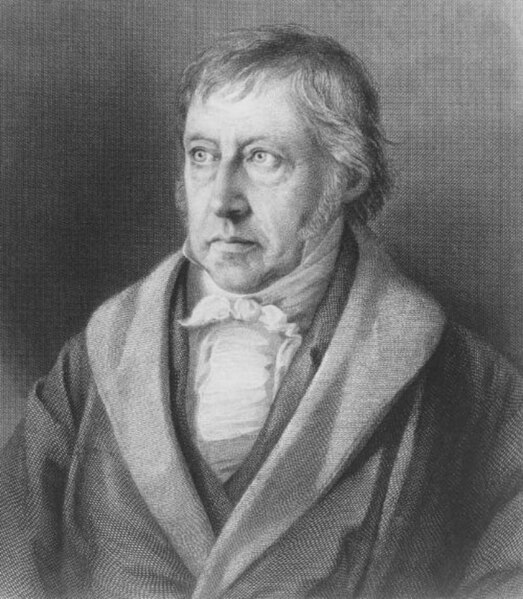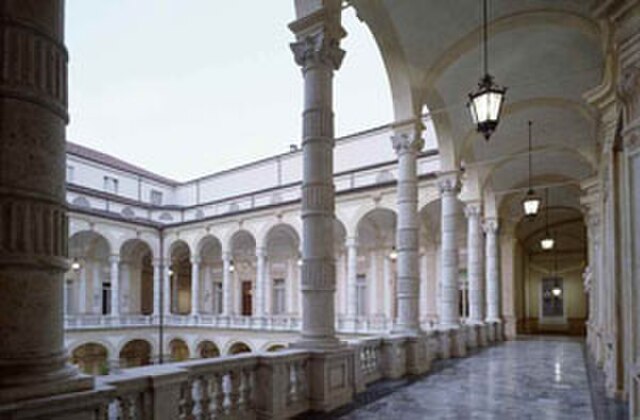Antonio Francesco Gramsci was an Italian Marxist philosopher, linguist, journalist, writer, and politician. He wrote on philosophy, political theory, sociology, history, and linguistics. He was a founding member and one-time leader of the Italian Communist Party. A vocal critic of Benito Mussolini and fascism, he was imprisoned in 1926 where he remained until his death in 1937.
Former Gymnasium Carta-Meloni in Santu Lussurgiu where Gramsci went 1905–1907
The Rectorate at the University of Turin, where Gramsci studied
Julia Schucht with sons
A commemorative plaque for Gramsci in Mokhovaya Street 16, Moscow. Translated, the inscription reads: "In this building in 1922–1923 worked the eminent figure of international communism and the labour movement and founder of the Italian Communist Party, Antonio Gramsci."
Marxist philosophy or Marxist theory are works in philosophy that are strongly influenced by Karl Marx's materialist approach to theory, or works written by Marxists. Marxist philosophy may be broadly divided into Western Marxism, which drew from various sources, and the official philosophy in the Soviet Union, which enforced a rigid reading of what Marx called dialectical materialism, in particular during the 1930s. Marxist philosophy is not a strictly defined sub-field of philosophy, because the diverse influence of Marxist theory has extended into fields as varied as aesthetics, ethics, ontology, epistemology, social philosophy, political philosophy, the philosophy of science, and the philosophy of history. The key characteristics of Marxism in philosophy are its materialism and its commitment to political practice as the end goal of all thought.
The theory is also about the struggles of the proletariat and their reprimand of the bourgeoisie.

Georg Wilhelm Friedrich Hegel was an important figure in the development of Marxism.





